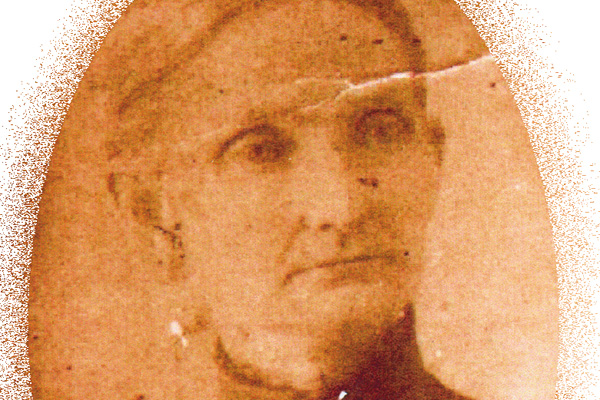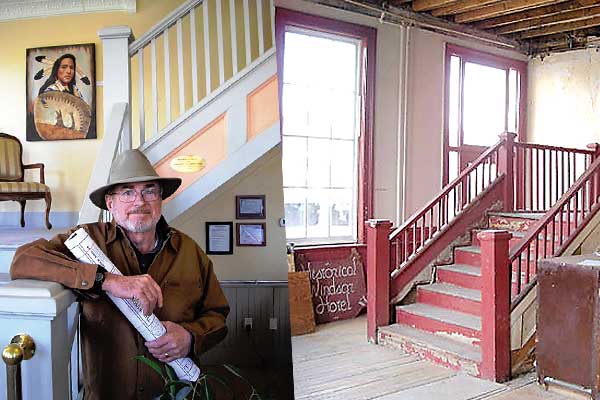 Many have claimed that Jesse James, America’s most notorious bandit, was a Robin Hood who took from the rich and gave to the poor. Others have refuted the claim. But how did this debate begin, and is there any proof that Jesse was a Robin Hood?
Many have claimed that Jesse James, America’s most notorious bandit, was a Robin Hood who took from the rich and gave to the poor. Others have refuted the claim. But how did this debate begin, and is there any proof that Jesse was a Robin Hood?
Perhaps the greatest influence on the Jesse James–Robin Hood link was the newspaper editor John N. Edwards, the so-called “Father of the James legend.” Early on, Edwards defined the Missouri outlaws as intelligent men who did what they did for noble reasons. As a Confederate officer during the Civil War, Edwards was well acquainted with the fighting ability of young men such as Jesse James who had served under the Missouri guerrilla leaders William Quantrill and “Bloody Bill” Anderson. Edwards had been a Southern officer who had refused to surrender and had followed General Joe Shelby to Mexico. Some years later, Edwards returned to Missouri and resumed his career as a newspaper editor.
Edwards actively reported the exploits of the James–Younger Gang and was their first defender. He was a master of disinformation and successfully created public sympathy for Jesse and his gang, particularly with former Confederates.
Edwards and Jesse eventually became friends, and Jesse even named his son after the editor. Through their friendship, Jesse became cognizant of his Robin Hood image, an image he sought to maintain. Oral tradition alleges that Jesse treated former Confederate soldiers and ladies fairly during his robberies. Further, some of his holdups were said to have been conducted with a romantic flair. And he may have considered his image when selecting robbery targets.
Gads Hill, the site of a Missouri robbery on January 31, 1874, is also the name of an English locale associated with the famous highwayman Dick Turpin. Although Jesse’s best known alias was John D. Howard, he also used the name Charles Lawson of Nottingham, England. Perhaps the most important evidence for Jesse being America’s Robin Hood comes from his alleged treatment of a widow.
The story goes like this: Jesse and his gang stop at the farmhouse of a widow and ask for a meal. Frequently she is described as the wife of a former Confederate soldier and has several children living at home. There is little food in the house, but the widow feeds the visitors as best she can. When Jesse notices tears on the widow’s cheeks, she tells him that the mortgage on her home is to be foreclosed that afternoon by the banker from a nearby town. The woman has no money. Moved by her plight, Jesse provides the widow with the funds she needs and then departs. A few hours later the banker arrives, receives the money and has no choice but to release the mortgage. A mile or so from the widow’s farm, Jesse robs the banker of the mortgage payment.
This story was also repeated by Judge James R. Ross, the great-grandson of Jesse, in his book I, Jesse James. Ross claimed that Jesse stopped at the widow’s house in the “hills of Tennessee” while on his way to Kentucky to visit kin. Ross stated that the widow’s name was Benton, and he said her husband had been a Confederate soldier and she had five children. Ross related the story to author Ted Yeatman in a 1993 letter, writing, “According to my grandfather [Jesse, Jr.], Uncle Ben [a family name for Frank James] always referred to her as the widow Benton when referring to her in front of the family, it being one of his favorite stories. My grandfather also received a letter sometime in the 1930s from a child of the widow Benton confirming the incidents and location. Unfortunately. . . this is lost, but I personally saw and read the letter.”
It must have made a good bedtime tale in the James household, and Frank James was known to spin a yarn. There may, however, be a veneer of fact in the story. The 1880 census for Sumner County, Tennessee, lists a widow named Nancy Benton, the wife of Richard Benton.
Richard “Dick” Benton of Tennessee married Nancy H. Binkley on January 20, 1853. Around 1860 Richard moved to Humphreys County (Jesse James lived near there in 1877-78). Richard apparently never enlisted in the Confederate Army but may have fought with local guerrillas. At some point he moved back to Robertson County, settling in New Chapel. He is thought to have died about 1877, leaving Nancy to raise their eight children. After Richard’s death, Nancy moved to White House in Sumner County.
The Benton family maintains that Jesse and his men stopped at Nancy’s home, ate a meal, and left a large sum of money. Whether Jesse helped her with the mortgage is unknown since the widow Benton was always reticent to talk about the matter.
Jesse and Frank lived around Nashville, Tennessee, from August 1877 (the year Richard Benton died) until late March 1881. They were frequently in Robertson and Sumner Counties, which lay on the north-south axis between their residences in Nashville and the home of their Uncle George Hite in Logan County, Kentucky, where they often sought refuge.
Whether Jesse helped a widow pay off her mortgage cannot be proved, but oral tradition points to Nancy Benton as the most likely candidate for the story’s widowed heroine.
Ralph P. Ganis is a noted historian and sculptor. Born in North Carolina, he currently lives in Florida and works for the US Government. He is the author of Uncommon Men: A Secret Network of Jesse James Revealed.






